6 steps to a better night's sleep when anxious

As we know it, sleep is imperative for boosting the immune system and our mental health. In these times of uncertainty, increased anxiety can stand in the way of us getting the rest we need. Read the blog for our 6 steps to a better night’s sleep during these unsettling times.
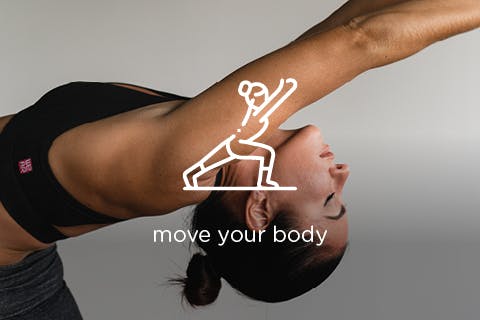
1. Move your body
Exercise has been found to lower anxiety and improve sleep so try incorporating this into your daily routine when at home. It could be as simple as a walk around the neighbourhood (remembering to stay 1.5 metres away from others) or doing an exercise video in your living room or backyard. Try to avoid exercising too close to bedtime however, as this can keep you awake. A morning or afternoon workout is best and can help keep your sleeping cycle on track.
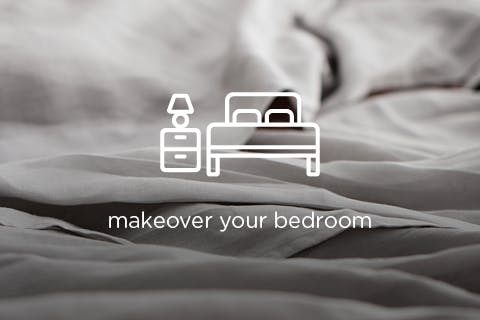
2. Makeover your bedroom
A messy bedroom can stress you out and we have the proof from Huffington Post. Try and keep your bedroom as a place for nothing but sleep and uncluttered with space-saving items like a bedside table or tallboy. Redecorating your bedroom can also do wonders for your sleep health. Upgrading a worn-out pillow and regularly changing up your bedding and linen are great, affordable solutions for improving your comfort. You could also consider purchasing a diffuser and using lavender oil, as this scent in particular is shown to induce relaxation and help alleviate anxiety.
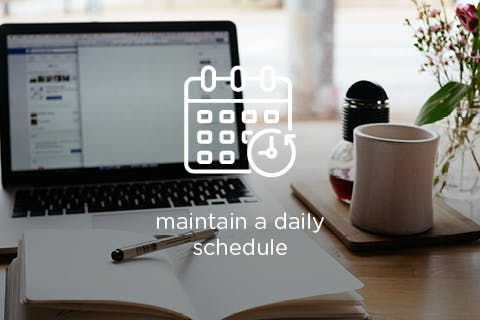
3. Maintain a daily schedule
Keeping a healthy routine can have a positive impact on your thoughts and feelings. Go back to the basics by eating healthy, exercising, getting enough sleep and doing things you enjoy. When it comes to sleep, go to bed and wake up at the same time every day, even on the weekends so you can set a natural sleep/wake cycle. Daylight also helps to set sleep patterns, so try to be outdoors while it’s light for at least 30 minutes a day and keep naps short if you need to take them (less than an hour, avoiding them all together after 3.00pm.
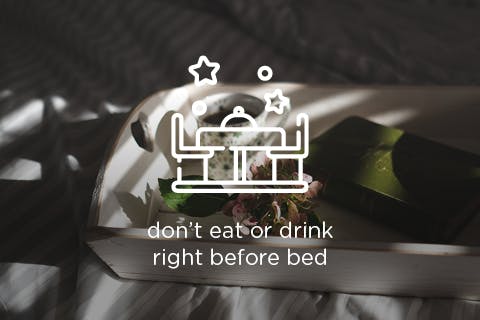
4. Don’t eat or drink before bed
Caffeine and alcohol can be bad for sleep, and for good reason. Too much caffeine can make you too alert to sleep well while alcohol may help you get to sleep but is likely to interrupt your sleep during the night. It’s a popular myth that alcohol can help you relax and de-stress before bed but it doesn’t make for quality rest. Try to ween off coffee, tea, chocolate, soft drink and alcohol at least a few hours before you decide to hit the hay. In addition to that, try to keep large meals to a minimum before bedtime to avoid indigestion.

5. Set a curfew for electronics
Winding down without electronics has always been the key to getting a good night’s sleep - and now it’s more important than ever according to Maryanne Taylor from ‘The Sleep Works’. Checking your email, listening to the news or doing work right before bed can also trigger anxious thoughts and make it difficult to calm your brain. Set limits around news and social media - you want to be informed and prepared but not intensify worry at night. If you get the urge to check updates at night, pause, notice the urge, delay acting on the urge, and let it pass without judgement. Schedule a specific time to check the news instead.
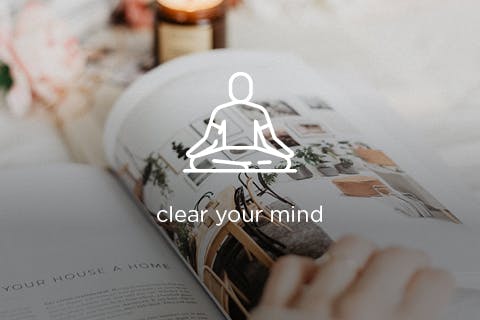
6. Clear your mind
Spend some time (although not right before bed) writing by hand to clear your mind. If you have any thoughts, anxieties, worries - get it down on paper. If you do watch TV in the evenings, sleep coach Katie Fischer (Circadian Sleep Coaching) suggests watching comedy to provide a helpful distraction from anxious thoughts. You could also practice mindfulness through reading, listening to music or relaxing before bed with a hot bath or deep breathing techniques through meditation or yoga. Fischer also suggests trying deep abdominal breathing like ‘sama vritti’ or ‘equal breathing’ to help alleviate symptoms of anxiety.
Now that we are faced with excess time through many people working at home, less or not at all for the foreseeable future, we need to ensure that our immune system and mental health stays in check. Decluttering your bedroom and structuring your days with a regular routine around work, meals, exercise and mindfulness will help you stay focused and more likely to experience a better night’s sleep.
Stay well, Snoozers.
References:
- https://www.psycom.net/anxiety-and-sleep/
- https://www.nytimes.com/2020/03/17/style/self-care/is-it-ok-to-go-for-a-walk-coronavirus.html
- https://www.health.harvard.edu/mind-and-mood/tips-for-a-better-nights-sleep
- https://www.huffpost.com/entry/home-organization-stress-survey_n_3308575
- https://www.stress.org/get-rid-of-sleep-anxiety-and-insomnia-your-guide-to-a-better-nights-rest
- https://www.ncbi.nlm.nih.gov/pubmed/19962288
- https://www.sleepfoundation.org/articles/sleep-hygiene
- https://www.sleephealthfoundation.org.au/news/sleep-blog/sleep-and-happiness.html
- https://www.ncbi.nlm.nih.gov/pmc/articles/PMC2775419/
- https://www.sleephealthfoundation.org.au/caffeine-and-sleep.html
- https://www.health.harvard.edu/staying-healthy/8-ways-to-quell-the-fire-of-heartburn
- https://www.theguardian.com/lifeandstyle/2020/mar/22/regulate-your-breathing-and-four-other-ways-to-sleep-when-youre-anxious
- https://services.unimelb.edu.au/counsel/resources/wellbeing/coronavirus-covid-19-managing-stress-and-anxiety